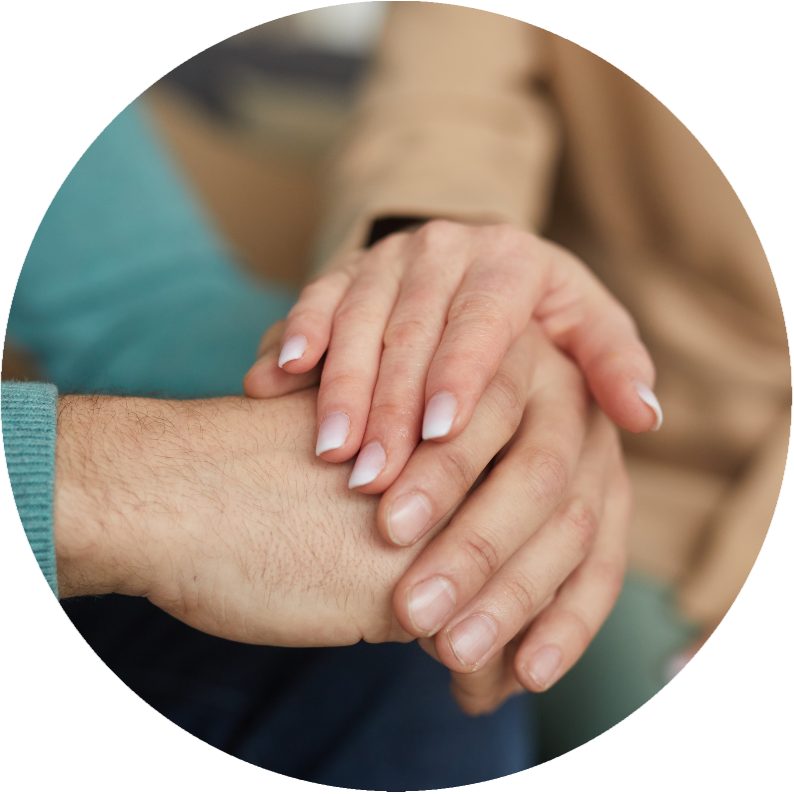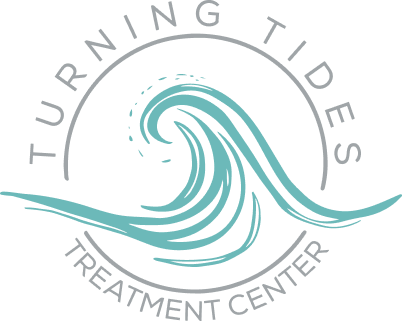Couple Therapy for Addiction
Drug addiction and alcohol addiction can have a devastating impact not only on individuals but also on their relationships. When one or both partners struggle with addiction, it can create significant strain and dysfunction within the relationship. However, there is hope. Couple therapy for addiction offers a unique and effective approach in helping couples navigate the challenges of addiction and recovery together.
The Basics of Couple Therapy for Addiction
Couple therapy for addiction is a specialized form of therapy that focuses on improving both the individual’s recovery and the overall health of the relationship. It recognizes that addiction is not just an individual problem but a systemic issue that involves both partners. This form of therapy works by addressing the underlying issues contributing to addiction and helping couples develop healthier ways of relating to themselves and each other.
In couple therapy for addiction, couples work with a trained therapist who specializes in addiction and relational dynamics. The therapist helps both partners explore their roles and responsibilities in the addiction, encouraging open communication and understanding. Through this process, couples can begin to rebuild trust, develop coping mechanisms, and navigate the challenges of recovery together.
During couple therapy for addiction, the therapist creates a safe and non-judgmental space for both partners to express their thoughts, feelings, and concerns. This allows for open and honest communication, which is crucial for the success of the therapy. The therapist may use various techniques and interventions to facilitate this process, such as active listening, empathy-building exercises, and conflict-resolution strategies.
One important aspect of couple therapy for addiction is the exploration of the underlying issues that contribute to addictive behaviors. The therapist helps couples identify and address these underlying issues, which may include unresolved trauma, relationship conflicts, or co-dependency patterns. By understanding the root causes of addiction, couples can work together to develop healthier coping mechanisms and strategies for long-term recovery.
Another key component of couple therapy for addiction is the development of healthy boundaries and self-care practices. The therapist helps couples establish clear boundaries and encourages self-care activities that support individual well-being. This is essential for both partners to maintain their own recovery and to create a stable and nurturing environment for the relationship to thrive.
Furthermore, couple therapy for addiction often involves educating couples about addiction and its impact on relationships. The therapist provides psychoeducation on addiction, including its physiological, psychological, and social aspects. This knowledge helps couples gain a deeper understanding of addiction and reduces stigma, fostering empathy and compassion towards each other’s struggles.
Throughout the therapy process, couples are encouraged to practice ongoing communication and problem-solving skills. The therapist guides couples in developing effective communication strategies, such as active listening, assertiveness, and validation. These skills enable couples to express their needs, concerns, and emotions in a healthy and constructive manner, fostering a stronger and more resilient relationship.
Couple therapy for addiction is a comprehensive and specialized approach that addresses the individual’s recovery and the health of the relationship. By exploring underlying issues, developing healthy coping mechanisms, and fostering open communication, couples can rebuild trust, strengthen their bond, and support each other in their journey towards long-term recovery.
The Benefits of Couple Therapy for Addiction
Couple therapy for addiction offers numerous benefits for couples facing addiction challenges. One of the primary benefits is the opportunity to work together towards mutual recovery goals. This collaborative approach not only strengthens the bond between partners but also increases the chances of successful and lasting recovery.
Partners can express their feelings and concerns. Addiction often creates a rift in relationships, leading to feelings of resentment, anger, and mistrust. Through therapy, couples can openly communicate and address these emotions, fostering a deeper understanding and empathy for one another.
By identifying and understanding the specific triggers that contribute to addictive behaviors, couples can work together to develop healthy alternatives and responses. This not only helps in preventing relapse but also strengthens the couple's ability to navigate future challenges together.
Addiction often stems from deep-rooted emotional or relational issues, and therapy can provide a space for exploring and addressing those underlying issues. As couples gain insight into their own struggles, they can better understand and support each other's recovery journey.
Addiction can strain even the strongest of relationships, causing distance and disconnection. Through therapy, couples can rebuild trust, improve communication, and reignite the spark in their relationship. This renewed sense of closeness can contribute to a more fulfilling and supportive partnership.
Many individuals struggling with addiction also experience conditions such as depression, anxiety, or trauma. This is also known as a c0-occurring disorder. Couple therapy can provide a platform for addressing these underlying mental health concerns, ensuring comprehensive and holistic treatment.
Couple therapy for addiction offers a multitude of benefits for couples. From fostering collaboration and mutual recovery goals to addressing underlying emotional issues and enhancing relationship satisfaction, therapy can play a vital role in the journey towards lasting recovery. By seeking professional help together, couples can strengthen their bond, heal individually, and build a healthier, more fulfilling future.
Dealing with Addiction as a Couple
Dealing with addiction as a couple can be incredibly challenging. It often involves a wide range of emotions, including fear, anger, distrust, and guilt. These intense emotions can strain the relationship and make it difficult for couples to effectively support each other in the recovery process. Couple therapy for addiction provides a safe and supportive environment where both partners can express their feelings and concerns openly.
When addiction becomes a part of a couple’s life, it can feel like a never-ending rollercoaster ride. The ups and downs of addiction can create a sense of instability and uncertainty within the relationship. Each day can bring new challenges and obstacles to overcome, leaving couples feeling overwhelmed and exhausted. However, seeking therapy as a couple can provide a glimmer of hope amidst the chaos.
During therapy sessions, couples are encouraged to communicate honestly and compassionately while learning constructive ways to address conflicts and challenges. The therapist acts as a guide, helping couples navigate the treacherous waters of addiction and its impact on their relationship. Through open and honest dialogue, couples can begin to rebuild trust and understanding, laying the groundwork for a healthier and more supportive partnership.
As couples navigate the complexities of addiction, they may also find solace in joining support groups specifically designed for couples dealing with addiction. These groups provide a space for couples to connect with others who are facing similar challenges, offering a sense of community and shared experiences. Additionally, support groups can provide valuable resources and insights into the recovery process, empowering couples to make informed decisions and take proactive steps towards healing.
Dealing with addiction as a couple is undoubtedly a difficult journey, but with the right support and resources, it is possible to overcome the obstacles and build a stronger, healthier relationship. Couple therapy for addiction offers couples the opportunity to heal together, fostering a sense of unity and resilience that can withstand the trials and tribulations of recovery.

Learning New Strategies to Overcome Addiction
In couple therapy for addiction, couples learn new strategies and tools to navigate the challenges of overcoming addiction. This may include developing healthier coping mechanisms, setting boundaries, and identifying triggers that may lead to relapse.
The therapist helps couples develop personalized plans for recovery, taking into account individual needs, strengths, and challenges. By learning and practicing these new strategies together, couples can strengthen their commitment to sobriety and create a supportive environment for each other’s growth.
One of the key aspects of couple therapy for addiction is the exploration of healthier coping mechanisms. The therapist guides the couple in identifying alternative ways to deal with stress, anxiety, and other emotions that may have previously led to substance abuse. This may involve teaching relaxation techniques, such as deep breathing exercises or mindfulness practices, that can help individuals manage their cravings and urges in a healthier way.
Another important component of couple therapy for addiction is the establishment of clear boundaries. Couples work together to define what is acceptable and what is not in their relationship, particularly when it comes to substance use. By setting boundaries, couples can create a safe and supportive environment that promotes sobriety and reduces the risk of relapse.
Identifying triggers is also a crucial part of the therapy process. Couples learn to recognize the people, places, and situations that may tempt them to engage in substance abuse. By understanding their triggers, couples can develop strategies to avoid or cope with these situations, reducing the likelihood of relapse.
Overall, couple therapy for addiction provides couples with the tools and strategies they need to overcome addiction and build a stronger, more fulfilling relationship. It empowers couples to take control of their lives and work towards a future free from substance abuse. With the guidance and support of a skilled therapist, couples can embark on a journey of healing and growth, paving the way for a brighter and more hopeful tomorrow.
Reducing Stress and Developing New Coping Skills
Stress is often a significant factor in addiction, and it can also contribute to relationship problems. Couple therapy for addiction focuses on helping couples reduce stress and develop new coping skills to manage triggers and cravings.
Through various techniques, such as relaxation exercises, communication skills training, and problem-solving strategies, couples can learn to navigate stressful situations and maintain their recovery progress. By reducing stress and developing healthier coping mechanisms, couples can create a more stable and supportive environment for their relationship and recovery.
Re-establishing Trust and Communication Skills
Trust is often heavily damaged by addiction. Couples in therapy are given the opportunity to address trust issues and work towards rebuilding trust. The therapist guides couples in rebuilding trust through open communication, honesty, and accountability.
Additionally, couples learn effective communication skills that promote understanding, empathy, and mutual support. These skills help couples navigate difficult conversations, express their needs and boundaries, and foster a deeper connection with each other.
Strengthening Communications to Encourage Sobriety
Effective communication is crucial in supporting each other’s sobriety. In couple therapy for addiction, couples learn how to communicate their needs, concerns, and successes in a way that promotes understanding and support.
This creates a healthier dynamic within the relationship, allowing both partners to feel heard, respected, and validated. A strong foundation of communication is essential for long-term sobriety, as it enables couples to address challenges, celebrate successes, and reinforce their commitment to recovery.
The Power of Mutual Support in Couple Therapy
In couple therapy for addiction, partners have a unique opportunity to provide each other with mutual support throughout the recovery journey. By attending therapy sessions together, couples can share their experiences, learn from each other’s perspectives, and access a shared support system.
This mutual support can be incredibly empowering and motivating. It reminds couples that they are not alone in their struggles and that they have a teammate who understands the challenges they face. Through mutual support, couples can strengthen their commitment to sobriety and create a future that is built on trust, love, and shared recovery goals.
Couple therapy for addiction offers hope and healing for couples facing the challenges of addiction. By addressing the underlying issues contributing to addiction and strengthening the relationship, couples can navigate recovery together successfully. From learning new strategies to reducing stress and re-establishing trust, couple therapy provides essential tools and support for couples seeking lasting sobriety and a healthier, more fulfilling relationship.
Get Help at Turning Tides
If you or a loved one is struggling with addiction and substance abuse, it’s crucial to seek professional help. Turning Tides Premier Drug & Alcohol Rehab Center offers comprehensive, evidence-based treatment that can help you regain control of your life and achieve lasting recovery.
At Turning Tides Rehab Center, our mission is to provide compassionate, evidence-based care to individuals with addiction and substance use disorders. Our customized treatment plans, experienced team, and supportive environment create the foundation for lasting recovery and improved mental health. Don’t wait to start your journey toward healing; reach out to us today.

